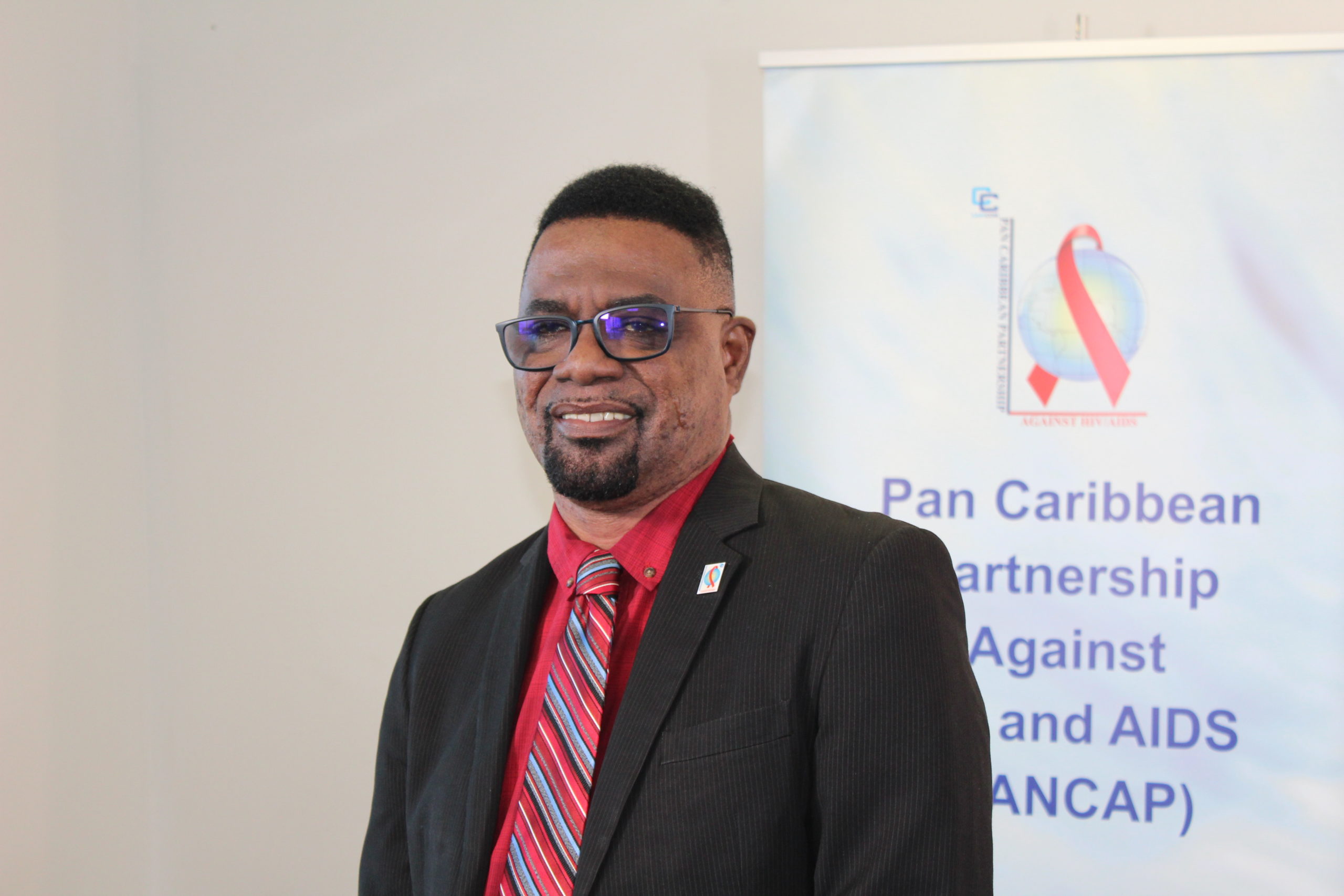
World AIDS Day 2019: PANCAP Director pays tribute to the stellar contributions of Communities
This year’s World AIDS Day theme is “Communities make the difference”. According to UNAIDS, the observance of World AIDS Day is an important opportunity for stakeholders to recognize the essential role that communities have played and continue to play in the AIDS response at the international, national and local levels.
I believe that this theme shines a spotlight on the phenomenal work that is being done by communities. It allows us to pay tribute to the passion, advocacy, resourcefulness and relevance of communities and to honour and celebrate their stellar contributions to the HIV response. Communities include peer educators, networks of People living with or affected by HIV, such as gay men and other men who have sex with men, people who use drugs, sex workers, women and young people, counsellors, community health workers, door-to-door service providers, civil society organizations and grass-roots activists. Since 1993 I have witnessed firsthand how communities have come together to do extraordinary things in their response to the needs of our brothers and sisters who were and continue to be challenged as People living with or affected by HIV.
As someone whose response was grounded at the grassroots level, I have seen communities give birth to groups and organisations to respond to HIV and the needs of key populations, speak up, inspire, and embrace our common humanity. I have seen communities stand alone against the self-righteous groups that see communities of men who have sex with men and transgender persons as a threat to the status quo and their authority over our so-called ‘” ordered societies”’. Communities have been an easy target for vilification and ridicule.
Communities have stood against the oppressors that seek to relegate them to second class citizenship. Communities have responded with compassion, enthusiasm, courage and practical solutions to effect positive change and to transform their lives.
It is the overwhelming response of communities that set us on this journey of resilience and has now given us hope that we can end AIDS. It is the advocacy and bold leadership of communities that forced the world to mount an unprecedented response to a public health threat such as we have never seen before. I am reminded of the words of Dr Jonathan Mann on the Tenth Anniversary of AIDS in August 1994. Quote – “We witnessed the birth of an authentic impulse of solidarity, our credo was tolerance; the scope and span of our communication were breathtaking. We helped open a new era in history and as we stormed the gates of the status quo, we knew we would prevail. Just as we learn about life by living, so we have learned about HIV and AIDS through real experience, hard work, joy and pain. There is nothing peripheral or superficial about what we have done. People around the world, facing specific immediate problems with prevention and care, or struggling against exclusion and discrimination, responded with creativity and courage which has no historical precedent, and which the world had no right to expect”. End of quote.
Communities were deeply affected and instead of crumbling in the midst of winter they rose up and found within themselves an invincible summer. It is their advocacy that saw the establishment of PANCAP, the first United Nations General Assembly Special Session on HIV and AIDS and global financing institutions such as the Global Fund to Fight AIDS, Tuberculosis and Malaria. It is communities that have strategically engaged with international development partners to ensure responsible transition and sustainability.
We must recognize communities as a coveted asset to the HIV response. We must see communities as the glue that holds us together. We must see communities as the backbone of the HIV response. Communities can bring evidence of what is happening in their respective groups to inform advocacy. We must see communities as worthy of investment. Therefore, as donor resources diminish, our governments and private sector must continue to invest in communities. When we invest in communities we are investing in our and our children’s future. We are investing in the vehicle to ending AIDS since communities are better placed to reach individuals that are underserved and who experience structural barriers, including stigma and discrimination, to access to prevention, treatment, care and support services. When we invest in communities, we are ensuring that we leave no one behind. Therefore, let us all commit to investing in communities for ending AIDS.
WHAT IS PANCAP?
PANCAP is a Caribbean regional partnership of governments, regional civil society organisations, regional institutions and organisations, bilateral and multilateral agencies and contributing donor partners established on 14 February 2001. PANCAP provides a structured and unified approach to the Caribbean’s response to the HIV epidemic, and coordinates the response through the Caribbean Regional Strategic Framework on HIV and AIDS to maximise efficient use of resources and increase impact, mobilise resources and build the capacity of partners.
What are the Global AIDS Strategy 2021–2026 targets and commitments?
If targets and commitments in the strategy are achieved:
- The number of people who newly acquire HIV will decrease from 1.7 million in 2019 to less than 370 000 by 2025
- The number of people dying from AIDS-related illnesses will decrease from 690 000 in 2019 to less than 250 000 in 2025.
- The goal of eliminating new HIV infections among children will see the number of new HIV infections drop from 150,000 in 2019 to less than 22,000 in 2025.
What are the 95-95-95 Targets for ending AIDS?
- 95% of People Living with HIV know their HIV status;
- 95% of people who know their status on treatment; and
- 95% of people on treatment with suppressed viral loads.
HELPFUL LINKS:
Global AIDS Strategy 2021–2026, End Inequalities, End AIDS
https://pancap.org/pancap-documents/global-aids-strategy-2021-2026-end-inequalities-end-aids/
Caribbean Regional Strategic Framework on HIV and AIDS (CRSF) 2019-2025
https://pancap.org/pancap-documents/caribbean-regional-strategic-framework-2019-2025/
